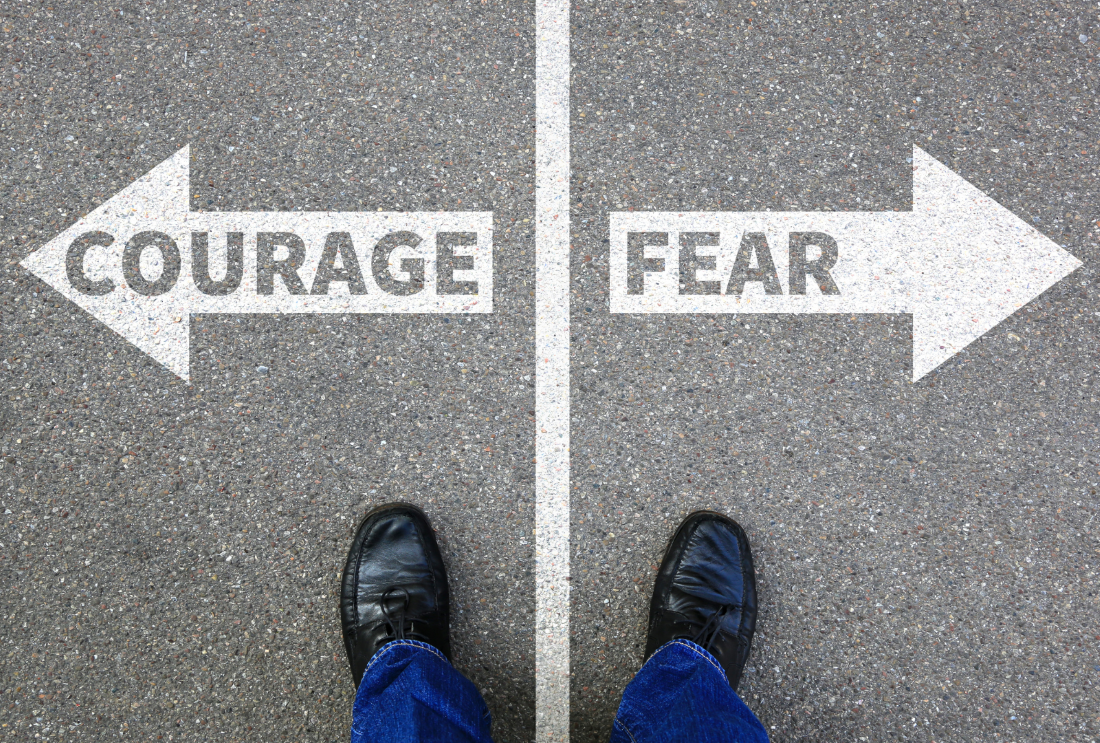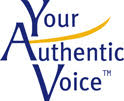
I did a search for all the acronyms that represent a fear of rejection. Here’s what I found:
- FOMO – Fear Of Missing Out
- FOJI – Fear Of Job Interview
- FOGO – Fear Of Going Out
- FOMU – Fear Of Meeting Up
- FODA – Fear Of Dating Again
- FONE – Fear Of Negative Evaluation
- FOPA – Fear Of Public Appearance
- FORT – Fear Of Rejection Therapy
Do you connect with any of these? If so, welcome to the human race! Dealing with rejection is a natural part of life and one everyone experiences at some point. For many of us, feeling inadequate when standing in front of an audience, taking on a new role at work, or expressing ourselves creatively may ignite our fear of rejection. We might not want to admit this to anyone, especially ourselves!
While it’s part of the human experience, it doesn’t mean it’s not challenging. When I work with people who need or want to speak, nervousness and stage fright are practically universal experiences. That discomfort can limit us from even considering a new opportunity or leadership position because it requires us to assume a higher profile. We can beat ourselves up unmercifully and take on the shame of not living up to our own or others’ expectations.
I personally have dealt with stage fright most of my life, even though I’ve been on stage more than 2,000 times, and often in front of large audiences. I have white-knuckled my way through, practiced all kinds of mindfulness techniques and therapeutic interventions, and rehearsed myself into oblivion. While these strategies have given me greater confidence and enabled me to continue to do what I love, I can’t lie — that fear of rejection can make itself known at any moment. And it’s not limited to the stage. I have certainly experienced FOMO and other rejection fears. What’s the answer?
Here are some strategies that can help you work with that fear of rejection:
- Recognize this is part of our human wiring. To our survival brain, risking rejection means risking our safety. We need to belong to the “clan” to have access to food, shelter, and social connection. These are deeply entrenched physical and emotional needs. Even if we’re not facing life-threatening experiences, our survival brain can interpret any risk of rejection as a threat. It will do whatever it can to prevent us from moving forward by making us seriously uncomfortable. We might get brain fog, dry mouth, or shaky legs, and suddenly need a drink of water or a trip to the restroom. Whatever it takes!
- Prepare. It’s always better to face the reality that certain situations could trigger your fear of rejection and take some pre-emptive steps.
- Practice mental fitness techniques to become aware of and intercept those triggers (email me at andrea@andreabeaulieu.com for more info on this).
- Reframe your role. Is this really a make-or-break situation? Are you really going to be ghosted as a result? If you are rejected by someone, is it really the end of the world? When you can reframe your role as being in service to others and release some of the self-consciousness you feel, that can be a game changer.
- Give yourself empathy by acknowledging your feelings. Stuffing your negative feelings, pretending they don’t exist, or compensating for them in some other way, doesn’t work. Feel them. Otherwise, they stick around or go underground and create future problems. Then give yourself the gift of shifting your focus. Part of us wants to understand — why did this happen? We may never know, and the answer most certainly will not come from our pain. We have to allow ourselves to recover and move into our clearer, calmer, deeper insight. Take a walk, talk to a friend or loved one, cuddle with your pet — do whatever creates positive feelings such as gratitude, curiosity, or excitement. From that place, you can release your negative feelings and you might discover the understanding you seek.
- Know there is a gift or opportunity in every experience, even if it’s not obvious at first. When you experience what appears to be rejection, you can learn from it. You can discover new insights about yourself. You can have a better understanding of your environment, your relationships, and your world.
Your worth as a human being is unquestionable and non-negotiable. You have worth because of your very existence. An experience of rejection most often has nothing to do with you. It can simply be the result of circumstances or the preferences of the other person. It can provide us with an opportunity for growth and self-reflection if we choose to use it for that. Seeking support from friends, family, or a professional coach or counselor can be incredibly helpful.
It takes courage to face our fears. By remembering to come from a place of compassion and empathy for yourself and others, and focusing on your essential value and strengths, you can embrace your humanness with love and be proud of yourself. If I can support you, I’d love to! Please email me at Andrea@AndreaBeaulieu.com. Be well!

Such a warm-hearted and practical offering. Thank you, Andrea.